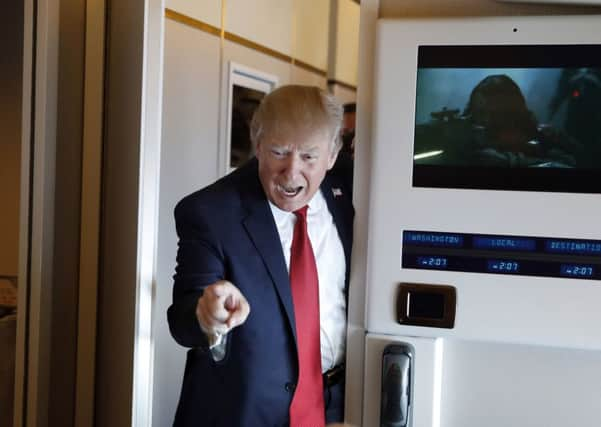Leader comment: US missile strike will alter global balance


The United States said it was confident that the airbase hit had been the base for the aircraft which carried out the attack on the town of Khan Sheikhoun in Idlib province in which dozens of civilians, including many children, died. It is believed the attack used the nerve agent Sarin.
In the past, Donald Trump has spoken out against US forces being in Syria and up until now the Americans have said they were not prioritising the removal of Syrian president Bashir Assad. But all that has changed. Although the US has been involved in air strikes against IS forces this is its first direct attack on Syrian government forces.
Advertisement
Hide AdAdvertisement
Hide AdThe change, and the reason for it, were clearly flagged up in the wake of the chemical attack. The domestic political issue that was at least partly behind it was also revealed. At a briefing in Washington, White House press secretary Sean Spicer essentially blamed the Obama administration, saying: “These heinous acts are a consequence of the past administration’s weakness and irresolution.”
President Barrack Obama declared a red line against chemical weapons in 2012 but then subsequently took no action.
“What’s the point of red lines?” Spicer said. “America’s credibility was at stake.”
So Trump sends a signal to both abroad and home, a signal that he is more decisive than Obama, a signal that he is tougher than Obama, and a signal that he is willing to sanction military responses. And this was all about the signal, and 59 Tomahawk missiles is a very strong signal.
So what will be the consequences? It is almost certain the missile attack will not have destroyed Assad’s ability to deploy chemical weapons in the future. But it might just erode his will to do so. That is what Trump and his advisers are banking on.
In the bigger picture, this assault on the forces of the Syrian government has angered its greatest ally, the Russians. Dmitry Peskov, spokesman for Russian President Vladimir Putin, called it “an act of aggression against a sovereign nation”. Russia has repeatedly blocked moves at the UN to act against Assad.
But because the US have been very careful to state very explicitly that this was a direct response to the chemical attack, and because of the very specific nature of the military action, it has been widely welcomed by the rest of the world.
Although it will ramp up the tension between the US and Russia, it probably does not threaten direct conflict. It might even mean that the Russian put pressure on Assad over chemical weapons because further use might draw them closer to outright hostilities.
So Trump’s involvement might have been a well-considered move, but it has certainly done nothing to help any move towards peace.